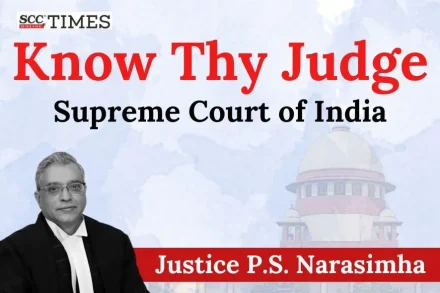
Know Thy Judge | Supreme Court of India: Justice Pamidighantam Sri Narasimha
Appointed directly from the Bar as a Judge of the Supreme Court of India, Justice P.S. Narasimha’s tenure as an advocate and as a Judge boasts of several landmark cases.

Appointed directly from the Bar as a Judge of the Supreme Court of India, Justice P.S. Narasimha’s tenure as an advocate and as a Judge boasts of several landmark cases.
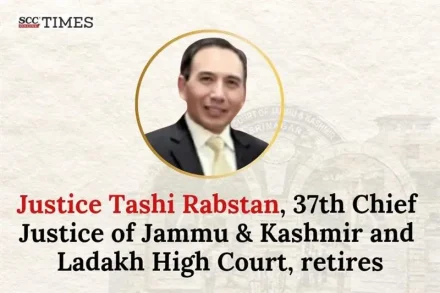
SC Collegium modified its proposal to recommend Justice Rabstan as Chief Justice of his parent High Court of J&K and Ladakh and he took oath of office on 27-9-2024.
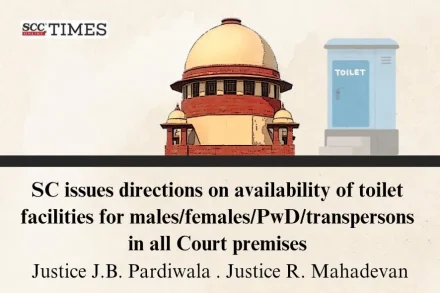
“Courts should not be places, where basic needs, such as sanitation, are overlooked and neglected. The absence of adequate washroom facilities undermines equality and poses a barrier to the fair administration of justice”.
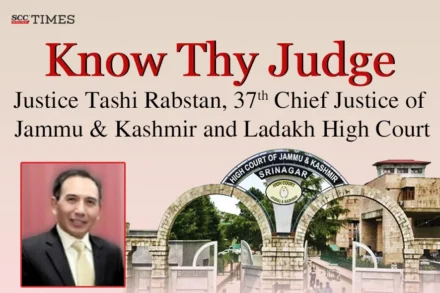
Justice Tashi Rabstan was earlier recommended to be appointed as Chief Justice of Meghalaya High Court; however, the SC Collegium modified its proposal to recommend him as Chief Justice of his parent High Court of J&K and Ladakh.
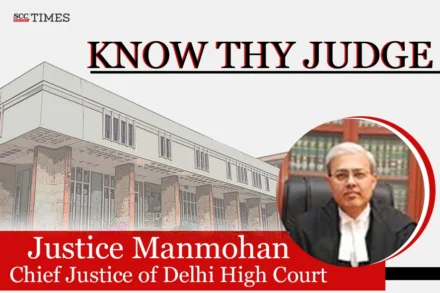
The Supreme Court Collegium on 11-7-2024 recommended the name of Justice Manmohan as the next Chief Justice of the High Court of Delhi and the recommendation was confirmed on 21-9-2024.
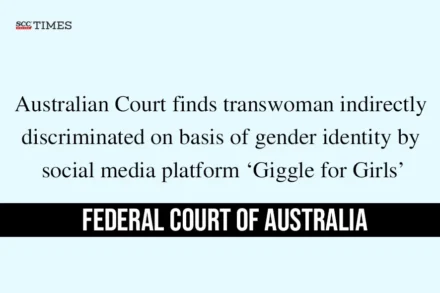
The Court found that applicant was excluded from the use of the Giggle App because she did not look sufficiently female, according to the respondents; hence, the respondents were directed to pay compensation of $10,000 to the applicant.
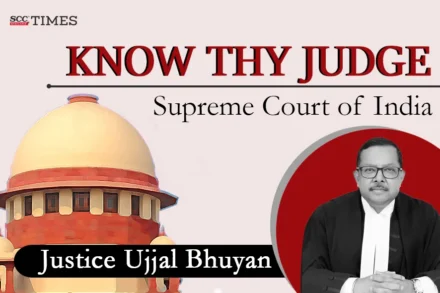
On 05-07-2023, the Supreme Court Collegium had recommended the appointment of Justice Ujjal Bhuyan, Chief Justice, High Court for the State of Telangana to the Supreme Court of India. Upon acceptance of the recommendation by the Law Ministry, Justice Bhuyan took oath as Supreme Court Judge on 14-07-2023.

The applicant contended that their gender identity and medical condition made them vulnerable to harassment and ridicule in society and in jail.
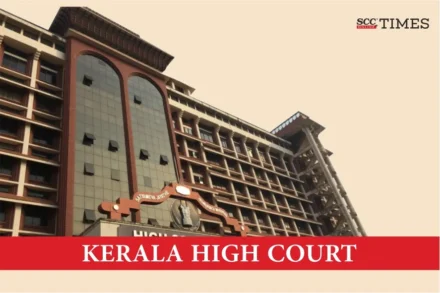
“Many LGBTIQA+ youth face familial rejection, often from an early age. This rejection can take a devastating toll on individuals and isolate them from physical, emotional and economic resources that are essential to their well-being. In such cases, it is important to recognise the family as a site of violence and control for many queer women, who they need protection from rather than any “guardianship”.
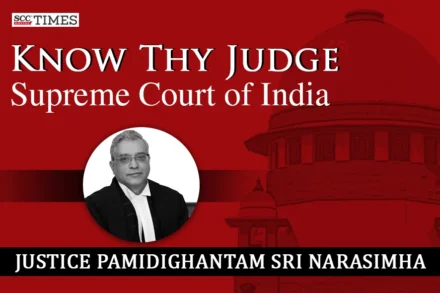
Appointed directly from the Bar as a Judge of the Supreme Court of India, Justice P.S. Narasimha’s tenure as an advocate and as a Judge boasts of several landmark cases.
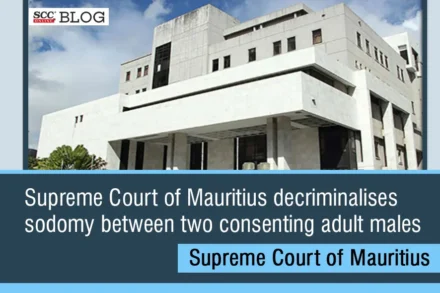
S. 250(1) of Criminal Code Act, 1838, is discriminatory in effect, and breaches Section 16 of the Constitution inasmuch as it criminalises the only natural way for homosexual men to have sexual intercourse.
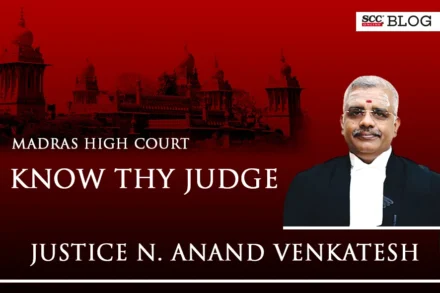
Justice N. Anand Venkatesh of Madras High Court is known within the legal fraternity for his progressive, profound and to the point judgments.
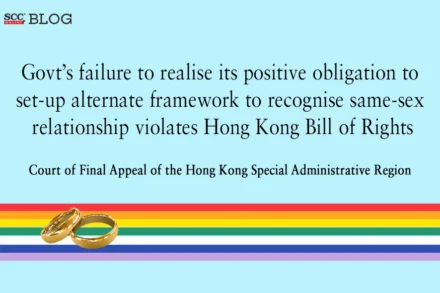
The Court with a majority of 3:2 issued a declaration acknowledging the need of same-sex couples for access to an alternative legal framework in order to meet basic social requirements
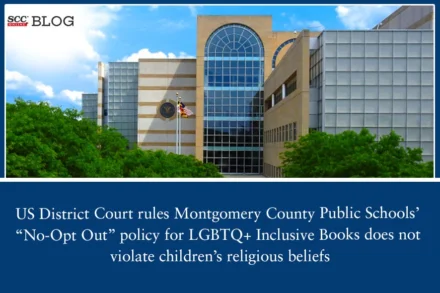
The Court opined that the policy does not prevent parents or children from exercising their religious obligations. In fact, the policy serves the school’s legitimate interest of fostering social integration and cultural inclusiveness of transgender and gender nonconforming students.
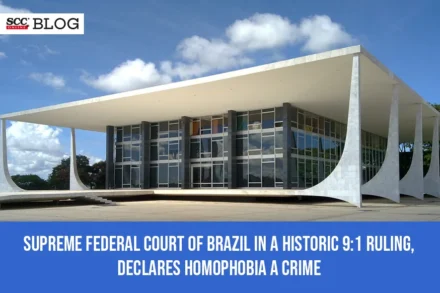
In a monumental decision, Brazil's Top Court declared homophobia to be a crime punishable by prison sentence.
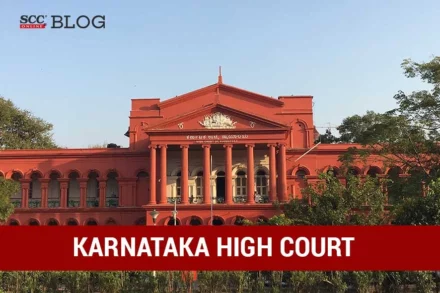
The Court emphasised that persons belonging to LGBTQ community should be treated with all the love and affection because sensitivity of them being ostracized already pervades in their psyche.
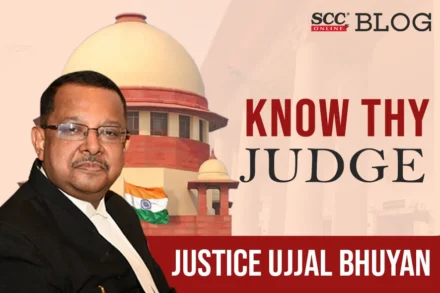
On 05-07-2023, the Supreme Court Collegium had recommended the appointment of Justice Ujjal Bhuyan, Chief Justice, High Court for the State of Telangana to the Supreme Court of India. Upon acceptance of the recommendation by the Law Ministry, Justice Bhuyan took oath as Supreme Court Judge on 14-07-2023.
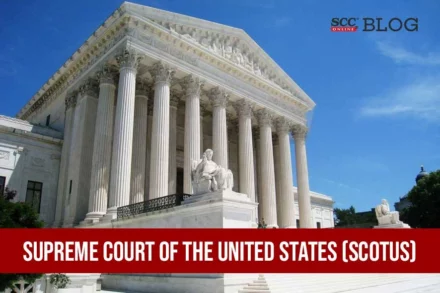
In a fierce dissent to the majority decision of allowing a wedding website designer to decline services to same-sex couples, 3 SCOTUS Judges pointed out that US Constitution contains no right to refuse service to a disfavoured group and cautioned that this decision may negatively impact not only the LGBTQ+ community, but also interracial couples in future.

The Court with a ratio of 6:3 protected the First Amendment right of the petitioner who believes in heterosexual marriages only.
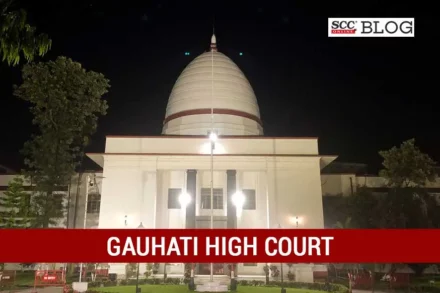
The Court noted the submission that a Welfare Board will help in addressing issues faced by the Transgender persons in the State.